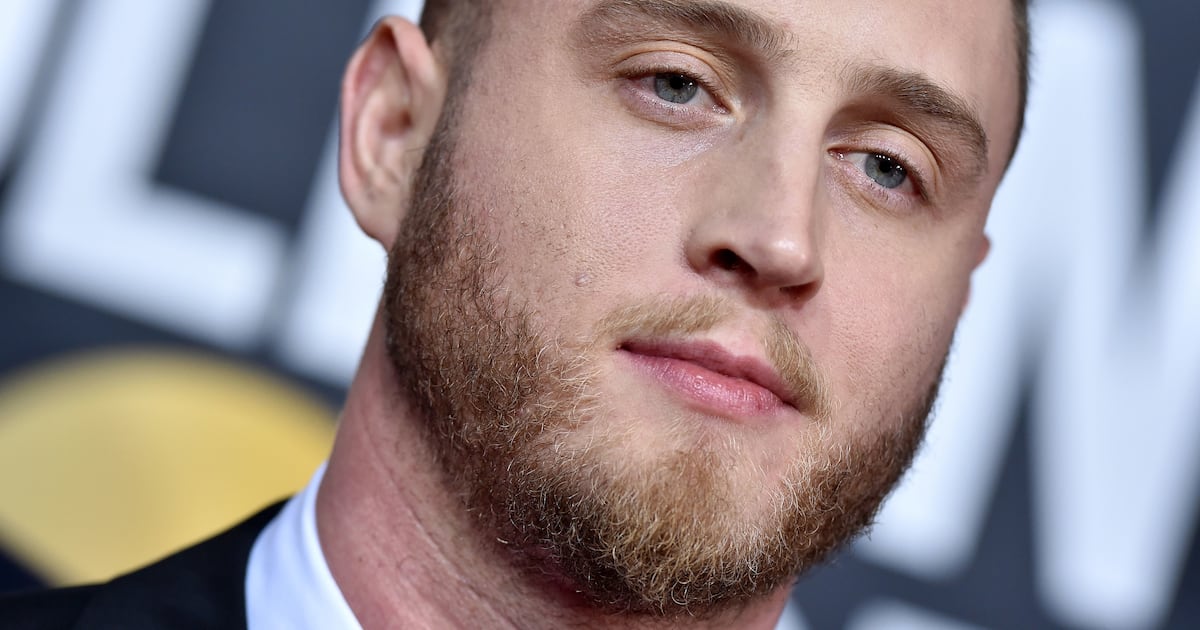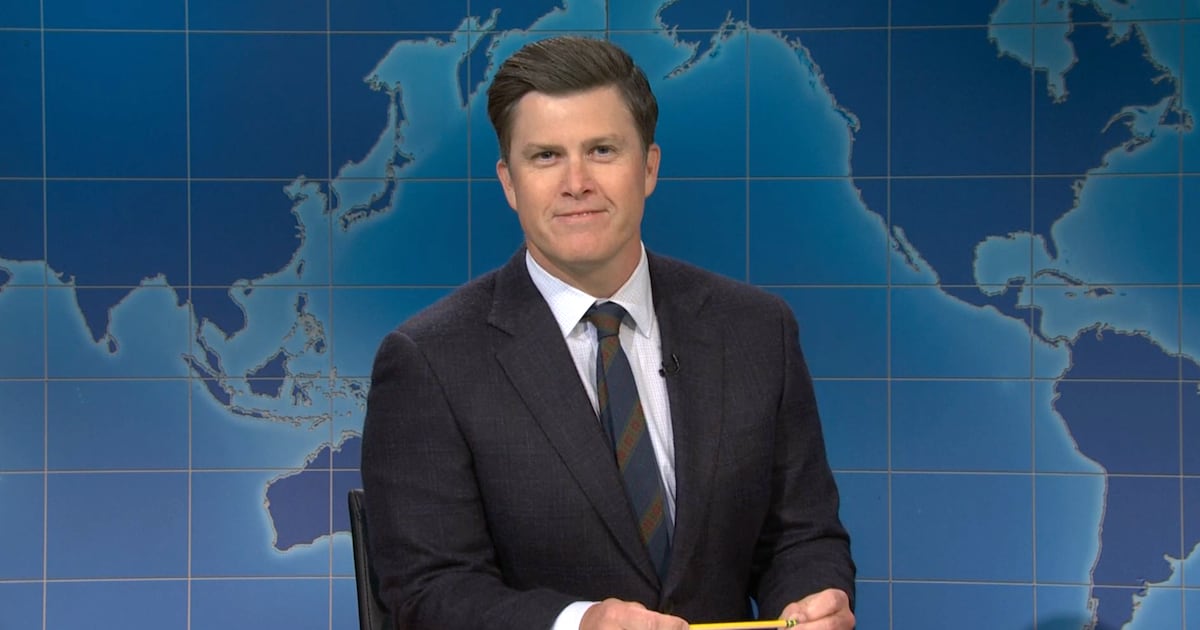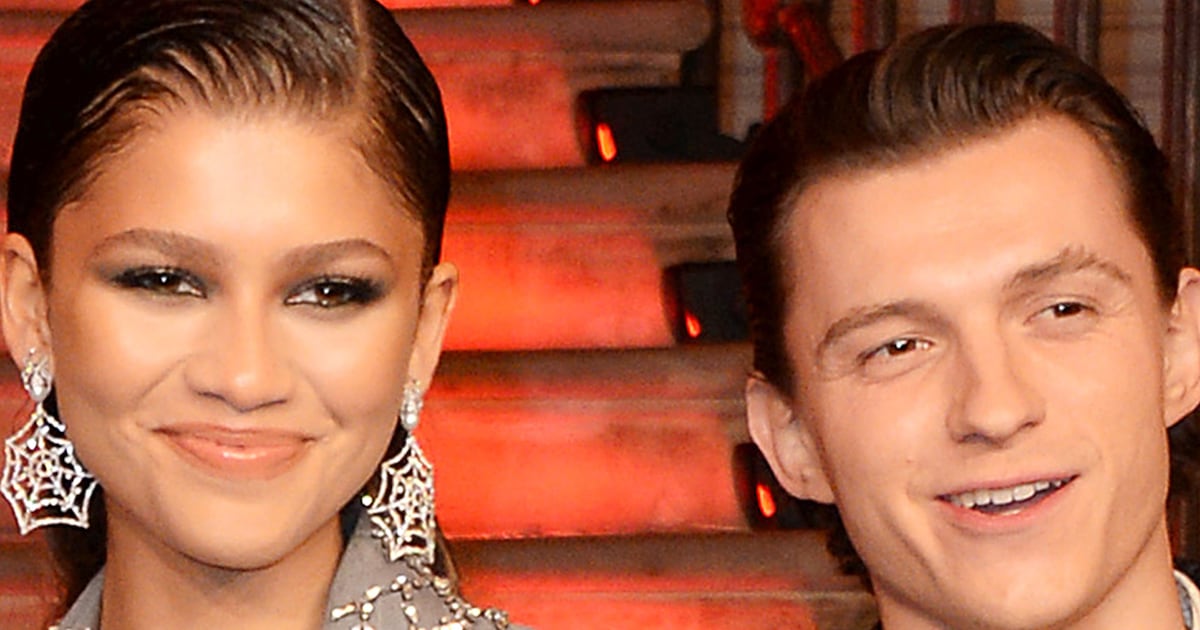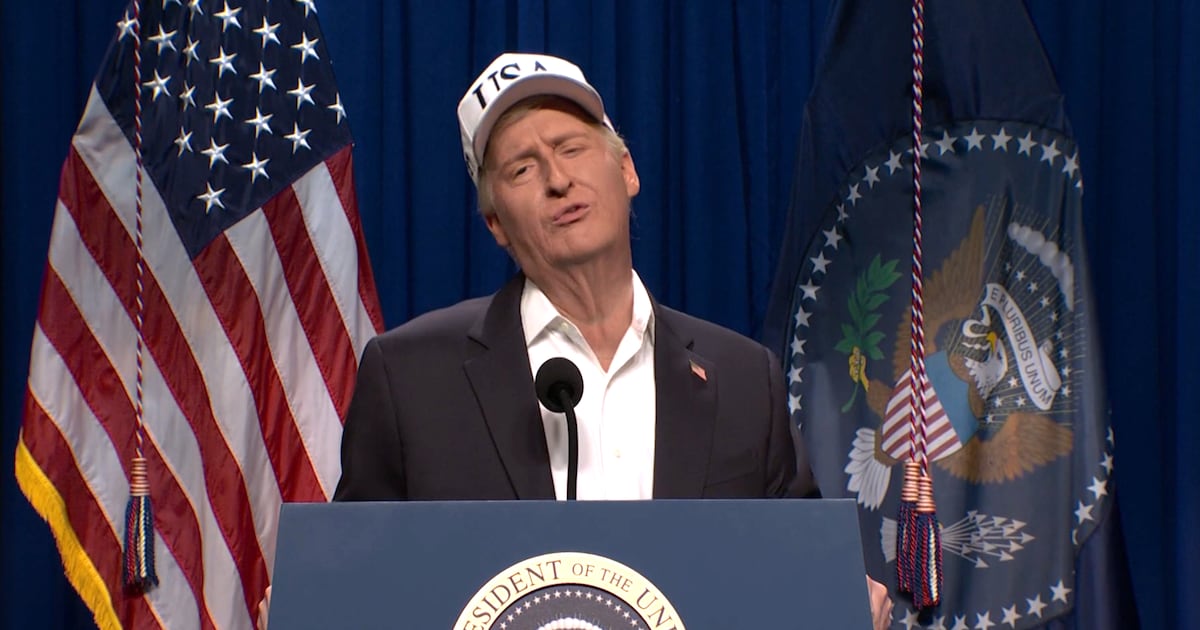Colin Farrell maintains a fascinating persona. He combines the striking good looks of a Hollywood-by-way-of-Ireland leading man, with a distinguished character actor’s choice of roles. It’s a rare, lucky thing for an actor to boast about—that they can enjoy big success while still being totally themselves.
In the early 2000s, when he was starting out, the actor appeared in well-performing blockbusters like Minority Report, Daredevil, and Phone Booth, along with well-received indie flicks like the Irish cult favorite Intermission. And in both big-budget flicks and shoestring projects, Farrell always got to play a character that was uniquely, recognizably him.
And it worked. For two straight years, he was an actor who was on top of the world—until he wasn’t. Farrell was set to follow up the success of S.W.A.T. with Oliver Stone’s 2004 historical epic Alexander. Instead, the movie flopped, both financially and critically. He followed that up with The New World, Terrence Malick’s retelling of Pocahontas, and Michael Mann’s reboot of Miami Vice. Both films were major commercial failures too, and suddenly, one of Hollywood’s box-office guarantees was no longer that. (Despite their troubles at the box office, critics now consider The New World and Miami Vice to be great films. The same cannot be said of Alexander.)
His public image also took a hit around that same time, in 2005, when he checked into rehab for a drug addiction. That was followed closely by a lawsuit over a sex tape with his ex-girlfriend. But in the years since, Farrell has managed to reclaim these public narratives about his stability and Hollywood potential. Not only did he handle questions about his addictions with humor and grace, but—most importantly—he bounced back with some better, smaller movies.
In 2008, Farrell starred in the whip-smart comedy In Bruges, playing a troubled hitman. This introduced him to Martin McDonagh, a creative relationship that would come to benefit him in the years to come; he also starred in McDonagh’s 2012 follow-up, Seven Psychopaths. He also began collaborating with award-winning director Yorgos Lanthimos, beginning with The Lobster in 2015, then The Killing of a Scared Deer in 2017. These highly acclaimed films were interspersed with both commercial successes, like Horrible Bosses and the Fright Night remake, and major flops like The Imaginarium of Dr. Parnassus, Total Recall, and Winter’s Tale.
Farrell was still regularly marketed as Hollywood’s bad boy at the same time. It wasn’t uncommon to see him partying with Playboy models and drinking in excess in the years since his box office peak. This followed him as he tried to rebuild his reputation, with talk of his roles in buzzy releases like True Detective tempered by questions of whether we could forget his antics. But Farrell has done a great job pushing back against public perception by quietly showing what he is capable of—and this year was the culmination of those efforts.
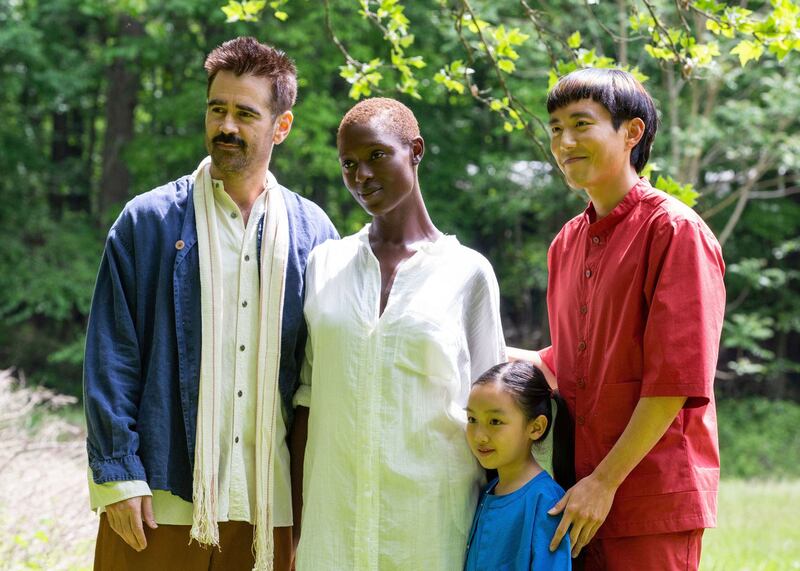
Colin Farrell in “After Yang.”
A242022 has ushered in a new, magnificent era for Colin Farrell, who’s starred in not one but four films this year, delivering great performances in each one. In each one, it becomes clear what Farrell’s special skill is: He manages to be both instantly recognizable yet completely anonymous. You forget that you’re watching Colin Farrell—instead; there’s a father, a rescue worker, a lonely man, or a villainous tycoon on screen. There’s an honesty and a vulnerability in every one of his great performances, as if he’s willing to sit down with you over a cup of tea (which he literally does in his film After Yang) and tell you every thought he’s ever had and every feeling he’s ever felt. He finds a deep connection to each of his characters, imbuing his performances with so much life. A lesser actor would get lost behind those beautiful bushy eyebrows, but Farrell is one of our finest, disappearing into every role.
This year isn’t just the year of Colin Farrell because he’s great in a bunch of movies. It’s because he’s delivered a year that most performers could only dream of, keeping true to his passion for unique characters while bringing that same energy to some blockbusters.
It all started with After Yang back in March—a lovely, understated, arthouse sci-fi film by Kogonada. Farrell plays Jake, a tea shop owner and father to adopted daughter Mika (Malea Emma Tjandrawidjaja). Mika’s best friend is Yang (Justin H. Min), a robotic man who’s like an inseparable member of Mika and Jake’s family. In a stunning opening sequence, the family competes in a choreographed dance challenge. (For the thirsty people out there, watching Farrell dance is an out-of-body, almost sexual experience.) When Yang suddenly begins to malfunction, however, Jake sets out to fix the robot, and the film poses a bold question of what it means to truly live.
Farrell’s performance is curious and insightful, devoid of theatrics or shows-topping moments as he peels back the layers of Jake’s character. Much of After Yang’s beauty comes in its quietude, allowing Farrell to convey more with his face and body languages than words ever could. In one especially striking scene, Jake talks in-depth about his passion for tea with Yang. It’s a gorgeous conversation about a man’s passion and desire, and how much something as simple as a beverage means to him.
It’s not what Jake says that’s so striking, but how he says it: Farrell imbues the character with such a sparkling warmth that makes him sound knowledgeable but not too knowledgeable, like a professor forever searching for more knowledge rather than know-it-all pundit. It’s a scene that beautifully taps into Jake as a father and a man, and a big part of that is Farrell’s work.
Also in March, Farrell flexed some never-before-seen muscles: He allowed himself to become completely unrecognizable in Matt Reeves’ The Batman, as iconic villain the Penguin. Farrell spends the movie buried under some great prosthetics; if you had no idea Farrell was in the movie, you’d still have no idea that was him as the Penguin until the credits roll. It’s a role that feels like the opposite of his part in After Yang: The Penguin is loud and boisterous. He doesn’t just chew the scenery—he devours it.
Quite a few actors have played the character before, most memorably Danny DeVito in Batman Returns and Burgess Meredith in the 1960s Batman TV series. Those performances leaned into the more ludicrous aspects of the character, offering delightfully camp interpretations. As The Batman is a gritty new take on the Caped Crusader, Farrell’s Penguin is appropriately darker and incredibly intense. There’s a tinge of unsettling irony to Farrell’s almost jovial voice as the Penguin, which feels like a nod to previous iterations. But Farrell forges a path all his own, creating a nasty, threatening villain unlike the previous takes.
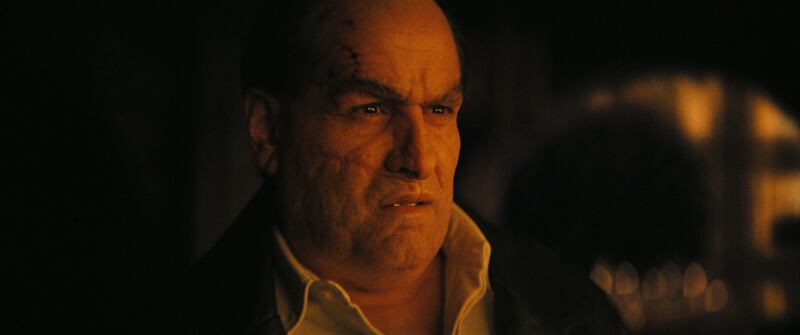
Colin Farrell as the Penguin in “The Batman.”
Warner Bros.The fact that two different Farrell performances that couldn’t be further apart from one another released in theaters on the same day in the U.S. is some magical kismet.
Not satisfied with just two great performances, Farrell turned in yet another strong turn this past summer in Ron Howard’s Thirteen Lives. The film, a dramatization of the Tham Luang cave rescue in 2018, is gripping and feels suitably epic. Farrell plays a British IT consultant named John Volanthen, who specializes in rescue diving in his spare time—which is almost certainly the most badass side hustle you could possibly have.
Volanthen, alongside other rescue divers, is called in to take on the daunting task of rescuing 13 people trapped in the cave. Admittedly, Thirteen Lives isn’t the kind of film especially concerned with performance—it’s far more invested in the mission itself and the extraordinary international effort undertaken. It’s a large ensemble, and Farrell’s character spends a lot of time underwater covered in diving gear.
It’s not a showy performance, one that doesn’t require a leading man-type star. But it is a reminder that Farrell doesn’t need a big lead role to prove he’s a top-tier actor. He exudes a remarkable physicality, balanced with empathy and eternal optimism that really makes you believe that this man is the right man for the seemingly impossible job. You don’t learn much about Volanthen, but you don’t need to, as Farrell has put in the work to make him human nonetheless. As a bonus, his character adores custard creams, which are the absolute best biscuits in the U.K. A man of taste.
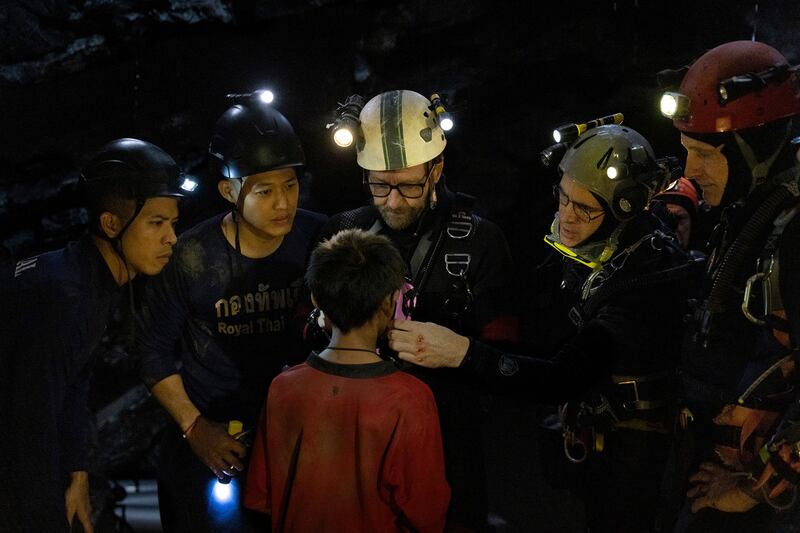
“Thirteen Lives.”
Vince Valitutti/Metro Goldwyn Mayer PicturesWhile his roles in After Yang, The Batman, and Thirteen Lives all impressive, none can match the sheer magnitude of his work in Martin McDonagh’s The Banshees of Inisherin. After their two prior features together, McDonagh and Farrell take their collaboration to new heights with the newly released black comedy.
Farrell plays Pádraic, living on the quiet, picturesque, but extremely boring island of Inisherin. Pádraic spends his days taking care of his cattle with his sister, Siobhan (Kerry Condon), and drinking pints down at the pub with his best friend Colm (Brendan Gleeson). One day, he goes to meet Colm, who startles him with the revelation that he’s no longer interested in continuing their lifelong friendship.
Pádraic thinks it’s a joke at first, laughing it off with a smile. When it becomes clear Colm isn’t joking, Farrell plays the moment perfectly. His jokey demeanor fades away with a quivering lip. His eyes flash with panic, before a look of genuine despair takes over. Colm is his only real friend—what is Pádraic to do now? How is there any joy in life on this lifeless island without him? And more pressingly, what on earth has brought this on? These are massive existential questions, but you can read them all on Farrell’s face. It’s the greatest performance of his career, channeling a lifetime of concern and worry into a single reaction.
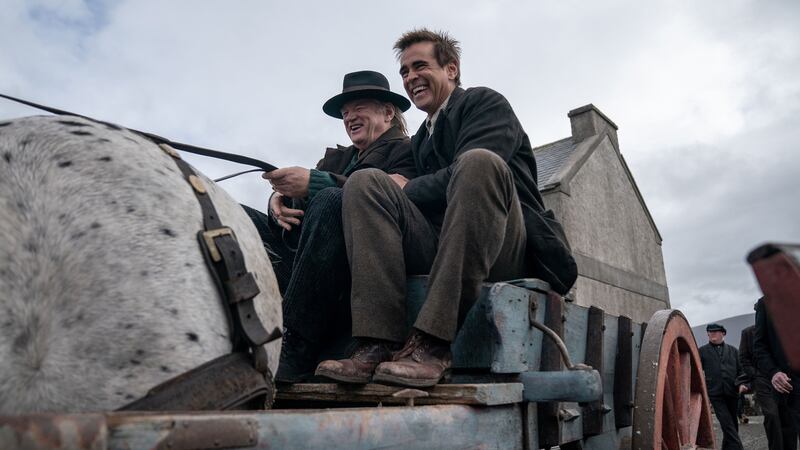
Colin Farrell and Brendan Gleeson in “The Banshees of Inisherin.”
Courtesy of Spotlight PicturesThings continue to escalate for Pádraic, who realizes Colm may want nothing to do with him because Pádraic’s a bore. That’s a crushing realization for anyone to face (and indeed, many have faced it), but Farrell handles it with a striking determination. Surely, if he could just speak to Colm, really speak to him, they could sort this out and everything will be fine! This, of course, is not as easy as it seems.
Banshees of Inisherin takes Farrell at his vulnerable, authentic best and channels those qualities directly into the heart and soul of Pádraic. There’s a real fear for the sensitive Pádraic that he’s being replaced and left out—a similar fear controls his character Jake in After Yang. Once again, Farrell completely dissolves into the role, displaying a lonely, needy, yet stoic man. It’s not showy, but it is tremendous—the kind of quiet, lingering performance that sticks with you for ages. The fact that he spends a great deal of time in the film with Jenny, the sweetest donkey whom I’d happily sacrifice myself for, only makes his epic performance even sweeter.
It’s been a long road for Farrell, but it's such a joy to see him on top of the world in 2022, delivering four—four!—great performances in a single year. It’s hard to imagine the same man who starred in Alexander is in this position today. Farrell had a dream start to his career that quickly became disastrous, going through addiction and personal dramas that have sunk many a promising career. It’s near-impossible to come back from being known for your scandals over your actual work, but Farrell has come back better than ever before, all by sticking to his guts and pursuing projects that allow him to shine. Farrell is living, breathing proof that an actor can watch their career tumble from its highest heights, put in the work to repair it, and come back better, bigger, and bolder than ever before. Finally, it’s the year of Farrell.


